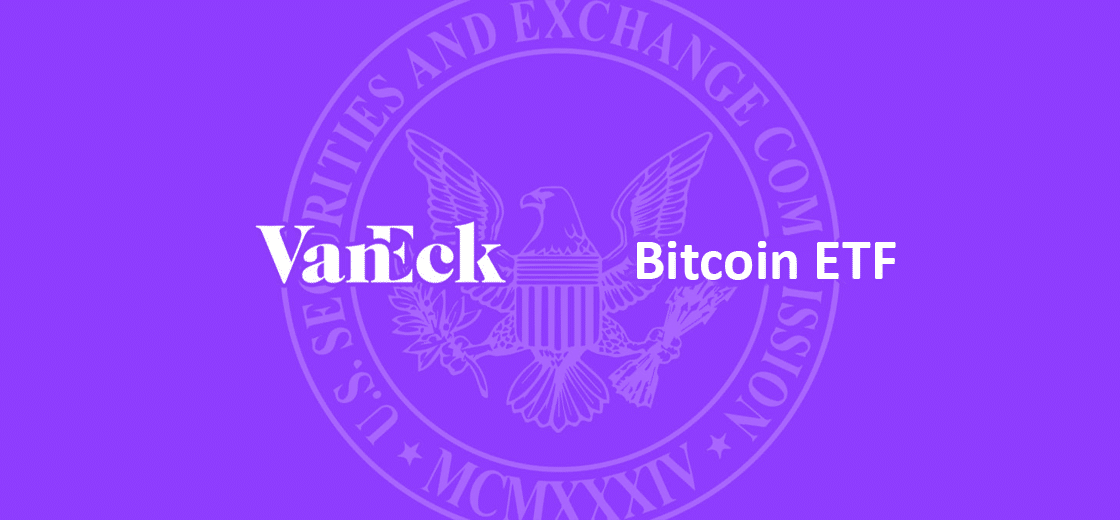VanEck’s Fourth Attempt at Launching a Bitcoin ETF
VanEck, a leading U.S. asset management firm, has submitted an application to the Securities and Exchange Commission (SEC) for the approval of its VanEck Bitcoin Trust, a Bitcoin exchange-traded fund (ETF). This marks VanEck’s fourth attempt to secure approval for a Bitcoin ETF, highlighting the firm’s commitment to providing institutional-grade investment products in the cryptocurrency space.
The VanEck Bitcoin Trust proposes to trade on the Cboe BZX Exchange and will base its valuation on the MVIS® CryptoCompare Bitcoin Benchmark Rate, which aggregates data from five major cryptocurrency exchanges.
What Makes This Bitcoin ETF Different?
VanEck’s latest filing introduces key features to address SEC concerns:
-
Regulated Third-Party Custodian:
- The ETF will use a regulated custodian to safeguard Bitcoin holdings, mitigating concerns about asset security.
-
Broad Exchange Representation:
- The index represents data from five crypto exchanges, ensuring accurate price representation and reducing market manipulation risks.
-
1:1 Bitcoin Holdings:
- Each share of the ETF represents Bitcoin holdings on a 1:1 ratio, providing direct exposure to the cryptocurrency.
VanEck’s History with Bitcoin ETF Proposals
Previous Attempts:
- 2017: VanEck filed its first Bitcoin ETF application but withdrew due to regulatory uncertainty.
- 2018: Collaborated with SolidX, a blockchain technology company, for another ETF proposal, which also faced rejection.
- 2019: Attempted to leverage Rule 144A, allowing private placement to institutional investors, bypassing some SEC restrictions.
Despite these efforts, the SEC has repeatedly cited market manipulation and investor protection concerns as reasons for rejecting Bitcoin ETF applications.
Success in Europe:
VanEck has achieved better outcomes in Europe, where it launched a Bitcoin exchange-traded product (ETP) in November 2020. The ETP is listed on Germany’s Deutsche Börse Xetra and trades alongside other crypto ETPs like those from 21Shares.
Challenges Facing Bitcoin ETF Approval in the U.S.
SEC Concerns:
- Market Manipulation:
- The SEC remains wary of the cryptocurrency market’s susceptibility to manipulation.
- Custody and Security:
- Ensuring the safety of Bitcoin holdings is a critical hurdle for approval.
- Investor Protection:
- The SEC emphasizes safeguarding retail investors from high volatility and potential losses.
Why the Timing Could Favor Approval
Increased Institutional Interest:
- With growing adoption by institutions like PayPal, Square, and Grayscale, Bitcoin is gaining mainstream legitimacy.
Bitcoin’s Market Maturity:
- Bitcoin’s market cap surpassing $1 trillion reflects greater stability and liquidity, addressing past SEC concerns.
Change in SEC Leadership:
- The incoming Biden administration and a potential new SEC chair may bring a fresh perspective to cryptocurrency regulations.
Conclusion
VanEck’s fourth attempt at launching a Bitcoin ETF is a significant step in bridging traditional finance with the cryptocurrency world. By addressing regulatory concerns through robust safeguards, VanEck aims to pave the way for broader institutional adoption of Bitcoin.
However, whether the SEC will approve this latest application remains uncertain, as past rejections were grounded in long-standing concerns about market integrity and investor protection.
To learn more about the innovative startups shaping the future of the crypto industry, explore our article on latest news, where we delve into the most promising ventures and their potential to disrupt traditional industries.
Disclaimer: The information provided is not trading advice, Bitcoinworld.co.in holds no liability for any investments made based on the information provided on this page. We strongly recommend independent research and/or consultation with a qualified professional before making any investment decisions.




